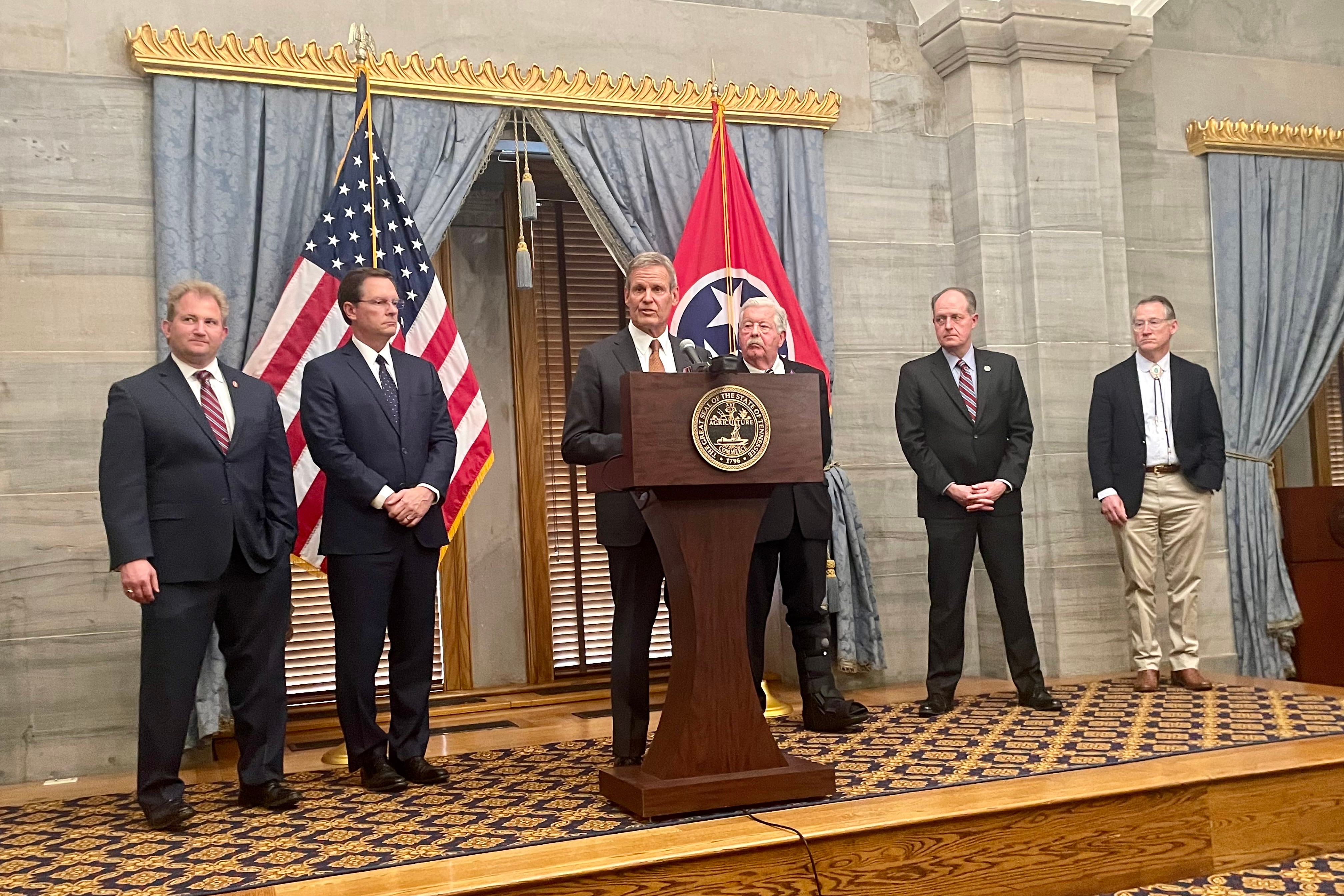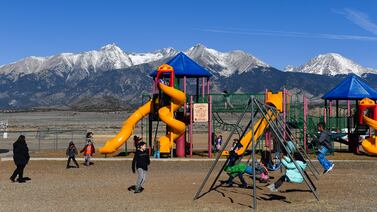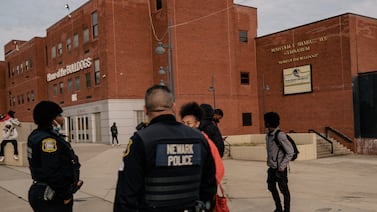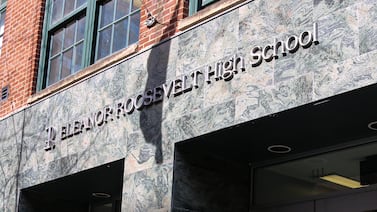Gov. Bill Lee said Thursday he will sign legislation to let some teachers and staff go armed in Tennessee public schools.
“Districts have the option to choose,” Lee told reporters after the legislature adjourned for the year. Some school systems, he added, need that option.
His decision comes despite calls from teacher and gun control groups for the governor to veto the bill, as well as concern that parents won’t be notified if their child’s teacher is armed. In nearly six years as governor, Lee has advocated for parental rights on education matters such as curriculum and library materials.
The impending law becomes one of the most significant public safety actions in Tennessee since an intruder shot and killed three students and three staff members a year ago at a private Christian school in Nashville.
Partisan votes in the GOP-controlled legislature advanced the bill this month despite mass protests at the state Capitol seeking stricter gun laws in the wake of the massacre at The Covenant School.
Since Tuesday’s dramatic House vote sent the bill to the governor’s desk, many of the state’s largest districts, including in its four urban counties, have announced they will not use the option if the bill becomes law. They say their campuses generally have a trained law enforcement officer on duty.
“I think meeting … general threats to an environment with another threat to an environment is not something that we want to participate in,” said Marie Feagins, the new superintendent of Memphis-Shelby County Schools.
Rural districts, where it’s more difficult to hire school resource officers for every school, are more likely to use the option, according to Rep. Ryan Williams of Cookeville and Sen. Paul Bailey of Sparta, the bill’s sponsors.
Under the legislation, carrying a gun would be voluntary, and allowed only if the local school district and law enforcement agencies agree to the policy. The school employee carrying the gun would have to possess an enhanced permit, complete 40 hours of certified training in school policing at their own expense, and pass a mental health evaluation and FBI background check.
Meanwhile, the bill’s passage has put Tennessee in the national spotlight, drawing criticism from gun control groups such as Brady, the nation’s oldest gun violence prevention organization, and Sandy Hook Promise, founded by family members of the 20 children and six adults killed in a 2012 shooting at Sandy Hook Elementary School in Newtown, Connecticut.
“The Tennessee legislature has just dishonored all who were killed at the Covenant School shooting last year by choosing to promote the proliferation of firearms in classrooms,” said Kris Brown, the president of Brady, after the House vote. “There is no evidence to suggest that arming teachers will keep children safe from gun violence. Multiple teachers were armed at Covenant Day School, yet that was not enough to stop six children and school employees from being murdered.”
Tennessee Democrats, who voted against the bill, expressed disappointment that the governor plans to sign the bill.
“This legislation is an affront to every parent, to every Tennessean,” Sen. Raumesh Akbari, of Memphis. “We appropriated a record amount of dollars to fund SROs in every school. But instead we’re leaning into this type of policy.”
Marta Aldrich is a senior correspondent and covers the statehouse for Chalkbeat Tennessee. Contact her at maldrich@chalkbeat.org.







